Reading proficiency Normal Phonics Worksheets for Ages 3-8
7 filtered results
-
From - To
Boost your child's reading skills with our engaging Normal Phonics Worksheets designed for ages 3-8! These worksheets offer a fun, interactive way to enhance phonetic awareness and reading proficiency. Tailored specifically for young learners, our resources include vibrant illustrations and age-appropriate activities that make learning enjoyable. The phonics worksheets focus on essential skills such as letter recognition, sound blending, and vocabulary building, ensuring a solid foundation in reading. Foster a lifelong love for learning with our carefully crafted materials that cater to all learning paces. Explore the joy of reading with Kids Academy’s Normal Phonics Worksheets today!
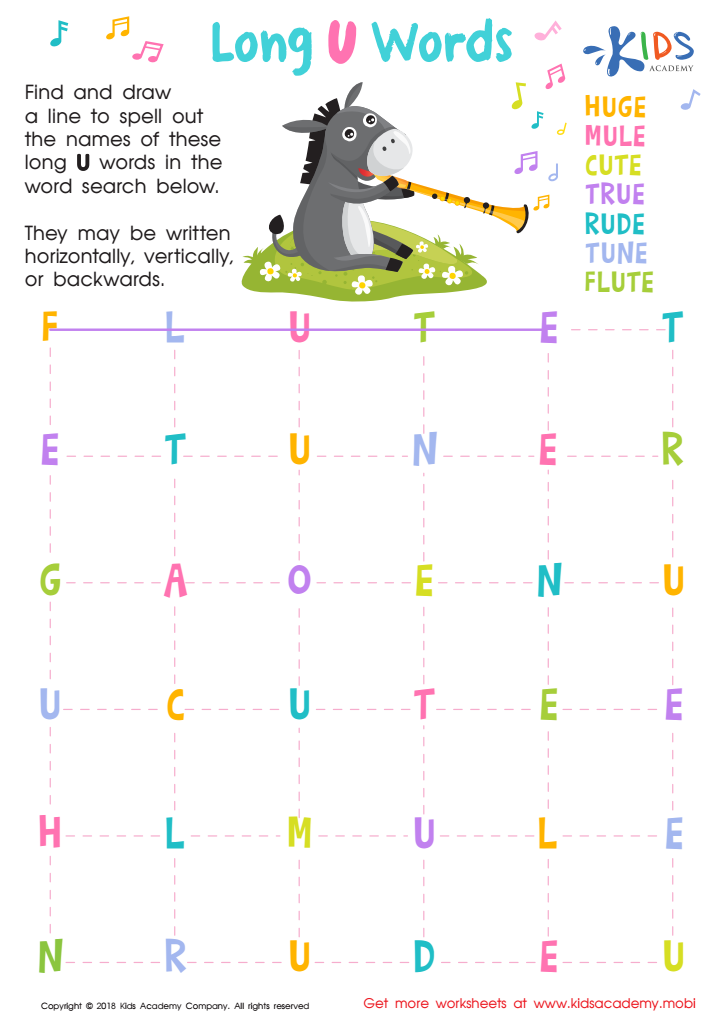

Long /u/ Words Worksheet
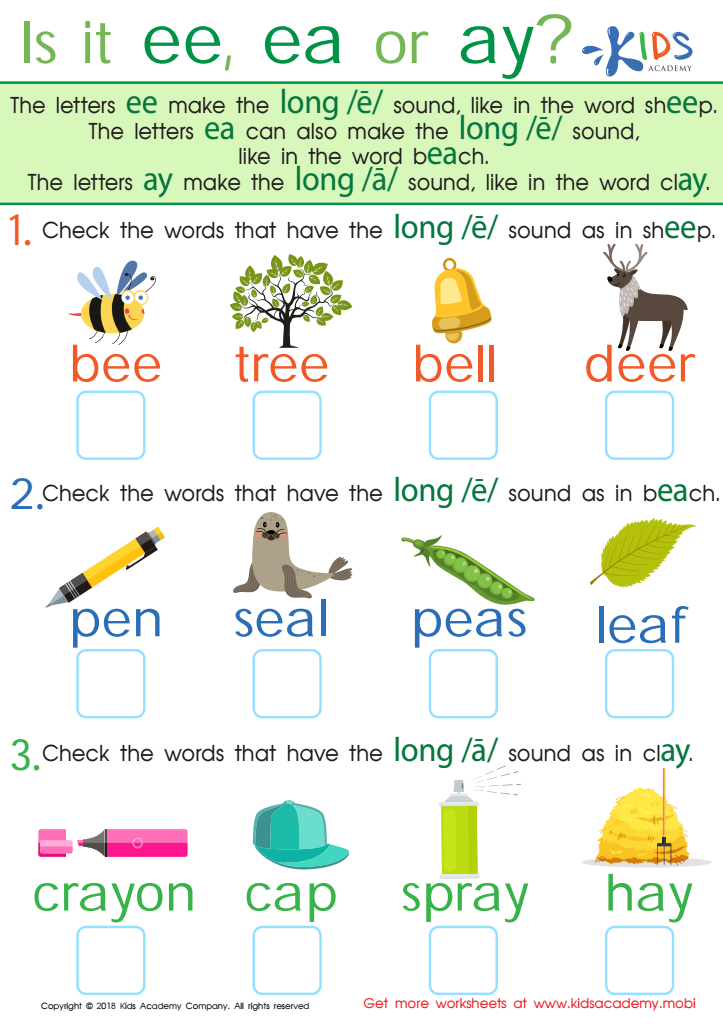

Is It EE, EA, or AY? Worksheet
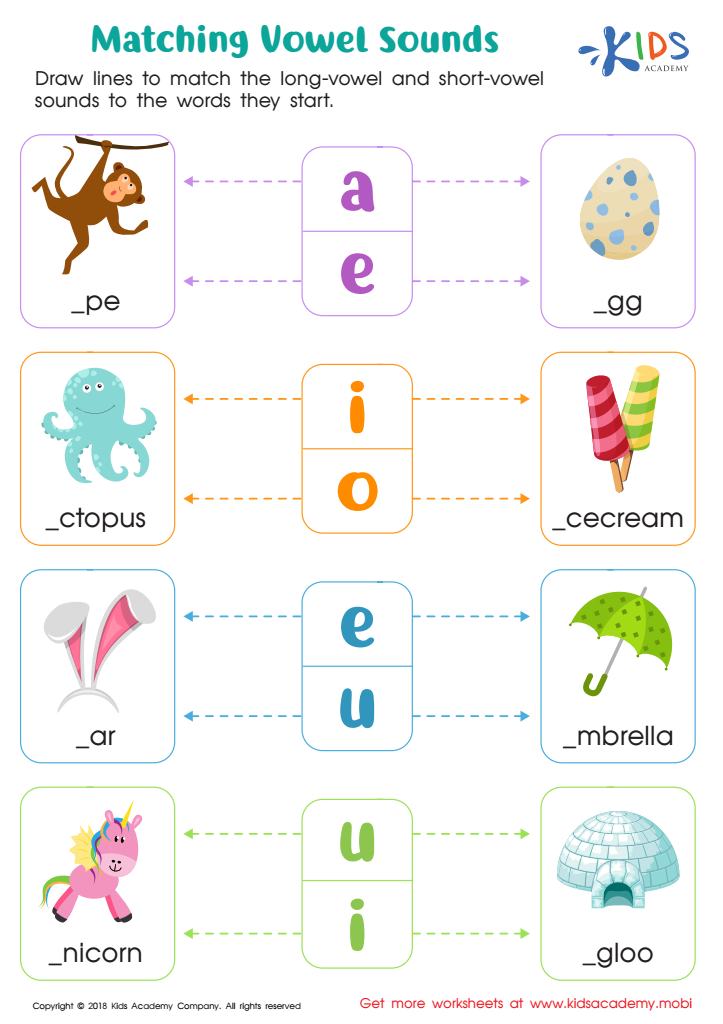

Matching Vowel Sounds Worksheet


Long and Short U Worksheet
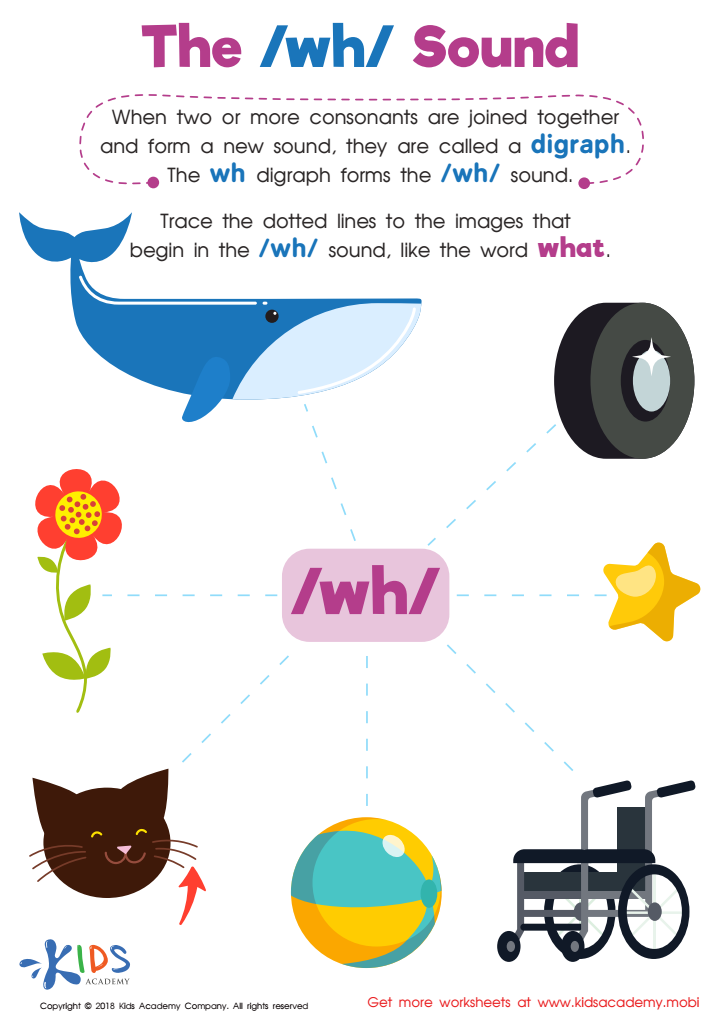

The /wh/ Sound Worksheet
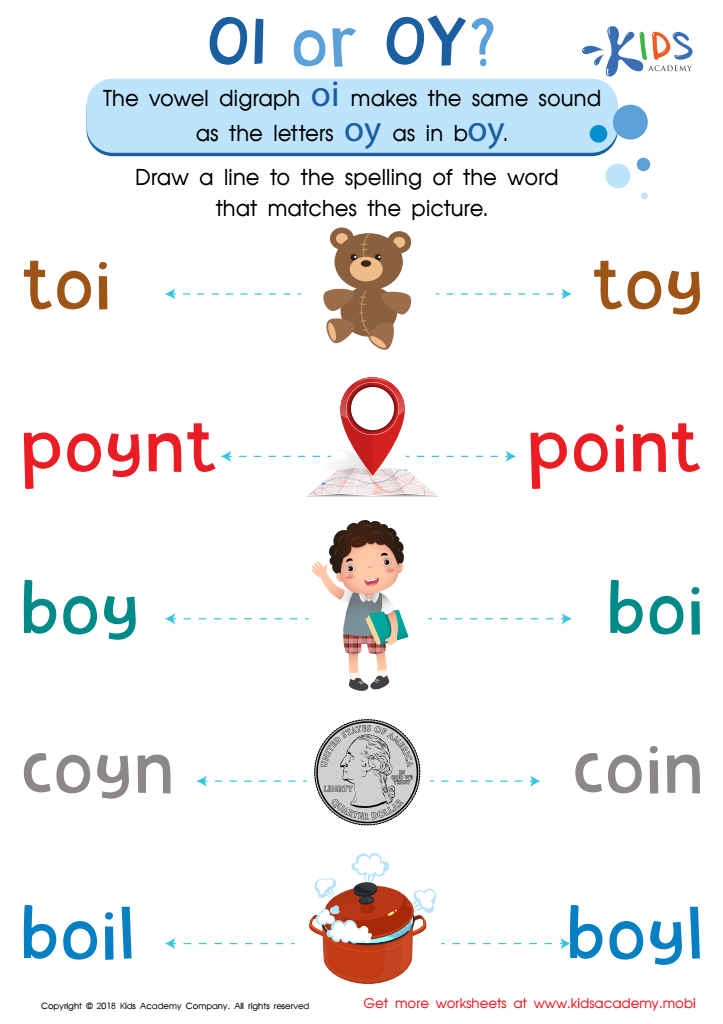

Reading: OI and OY Worksheet
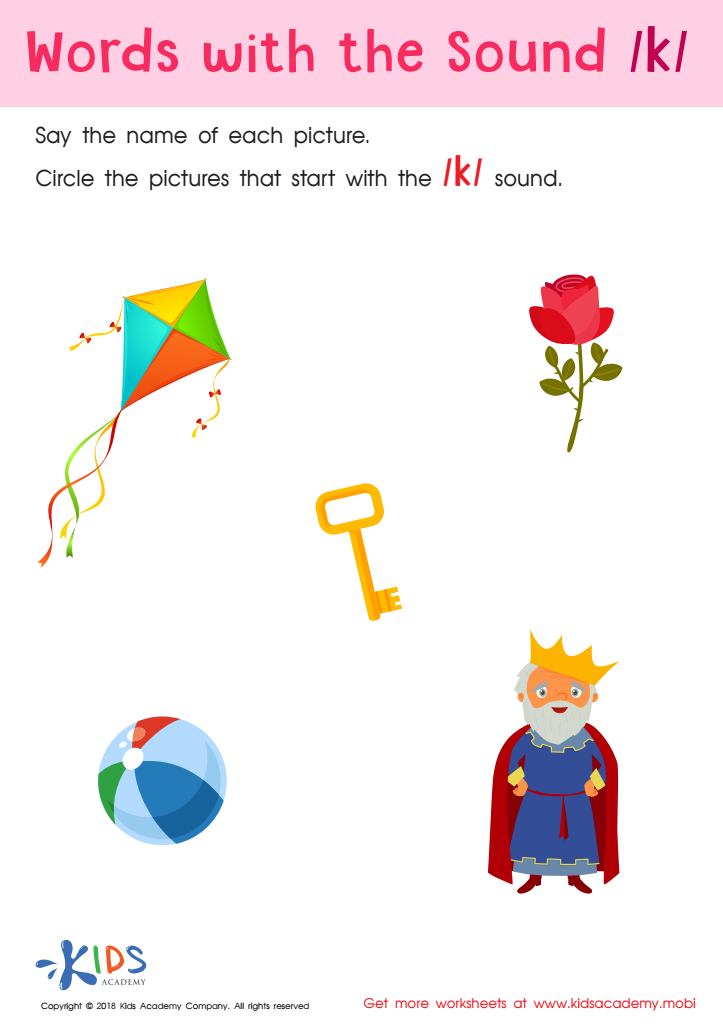

Words with sound k Reading Worksheet
Reading proficiency is crucial for children aged 3-8, as it lays the foundation for their overall academic success and lifelong learning. Normal Phonics, a systematic approach to teaching reading, emphasizes decoding skills and phonemic awareness—essential for understanding how letters and sounds combine to form words. Parents and teachers should care about this because early reading skills are strongly linked to later academic achievement. Children who struggle with reading often face challenges in other subjects, leading to a cycle of frustration and disengagement.
Moreover, mastering phonics at a young age boosts a child’s confidence, enabling them to participate actively in classroom discussions and enjoy reading for pleasure. It facilitates better language development, enhances vocabulary, and promotes critical thinking skills—key components for effective communication.
Furthermore, with early reading proficiency, children are more prepared for standardized tests in later grades that heavily assess reading capabilities. Supporting children in developing these skills during their formative years ensures they are equipped not just for school, but for navigating the complexities of life beyond education. Therefore, investing time in Normal Phonics is essential for empowering young learners with the tools they need for future success.
 Assign to My Students
Assign to My Students


















